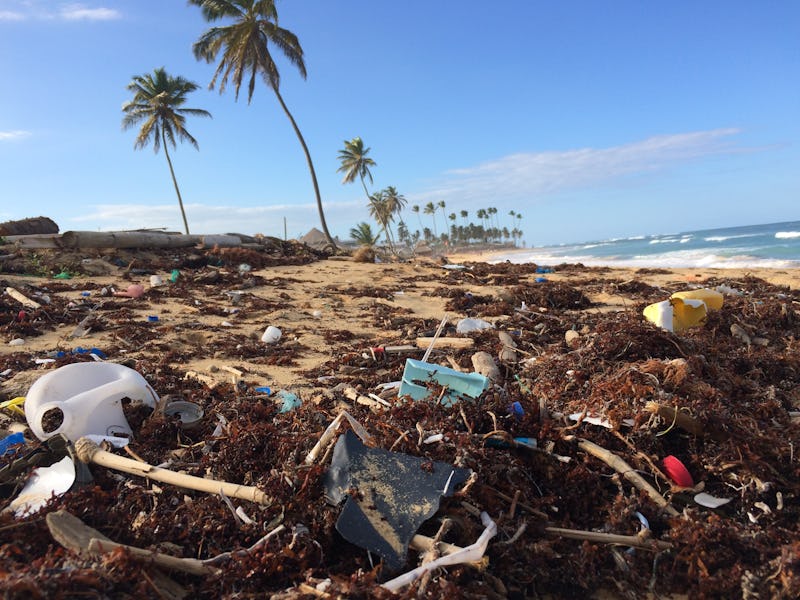A Scientist Finds Hope in Landmark Report on 1M Species Facing Extinction
"If you think of this report as a health check, we’re in bad shape — but we’re not terminally ill."

On Monday, the United Nations released a landmark report on the state of the natural world. Representing the work of hundreds of scientists and community members from 50 countries working together over three years, the paper presents a grave scenario: 1 million of the planet’s species are at risk of extinction, and nature’s richness is declining at an unprecedented rate.
This behemoth of a report, based on a systematic review of 15,000 scientific and government sources and produced by the Intergovernmental Science-Policy Platform on Biodiversity and Ecosystem Services, may appear to suggest that all hope is lost for the natural world. Co-author Andy Purvis, Ph.D., a research leader at the Natural History Museum, London, tells Inverse that believing that would be a mistake. Purvis says should think of this report as a “health check” — we’re in bad shape, but we’re not dead yet.
The report ranks the top five most influential drivers of biodiversity loss as changes in land and sea use, direct exploitation of organisms, climate change, pollution, and invasive alien species.
Here’s Inverse’s Q&A with Purvis, who, despite the bleak findings of the report, remains optimistic despite the challenges ahead.
Three-quarters of the land-based environment and about 66 percent of the marine environment has been significantly altered by human actions.
How can the general public take advantage of the information in this report?
This report isn’t just for governments. It’s also for all sectors in every society. That’s because we have systemic global problems, so the solutions have to involve everyone.
Here are things everyone can do: Demand that your politicians consider future generations as well as the short term; support them when they do, and vote them out when they instead prefer short-termism and self-interest. Reduce your own footprint on Earth — tread lightly rather than stamping on nature. Do you really need to fly so much, to buy so much stuff, to eat so much meat? Favor businesses that consider not only their bottom line but the bottom line for the planet.
What are the major causes of biodiversity and ecosystem change?
Humanity has become the major cause of change in biodiversity and ecosystems. In the last 50 years, the human population has doubled; the global economy has got four times as big, and global trade has increased tenfold.
Put simply, there are more people and they want more stuff. As a result, we convert ever more land, freshwater, and ocean from natural habitat to managed habitat, squeezing nature out. We directly exploit organisms of many species — through, for instance, logging, fishing, and hunting. On top of this, human-caused climate change is already having serious impacts which are only going to get worse.
We also pollute the environment; while trade means that we move lots of species from place to place, some of which go on to become problems or pests.
Pollution contributes to biodiversity loss on Earth in a major way.
Are there any aspects of biodiversity loss that you think people need to be especially attentive to?
[They should be attentive to] the sheer speed of it. A million species are now threatened with extinction, many within decades — and most of those only became threatened in the last 40 years.
Coral reefs are on the brink: If we can keep climate change to 1.5 degrees C (2.7 degrees F) of warming, 10-30 percent of coral reefs might survive, but if we get to 2 degrees C (3.6 degrees F), less than 1 percent will survive. The fossil record tells us that when reef-forming species die out, they take tens of millions of years to come back.
And climate-change effects are now so obviously visible that they simply can’t be ignored. For instance, take a look at when the spring flowers are first coming out — it’s getting earlier every decade. Take a look at how often droughts are causing crop failure (unless there’s irrigation) and wildfires.
Is there any good news that you think we can take away from this report?
Definitely. If you think of this report as a health check, we’re in bad shape — but we’re not terminally ill. This can be turned around, but we have to take our medicine. That means working together — all sectors of society —to transform our economies, to move away the false dichotomy between jobs and nature, to move away from always demanding more from the planet, and to move away from short-termism that sells future generations short.
Hundreds of thousands of babies will be born today. The good news is that we can still choose what sort of world they’re going to live in. How do we want them to think of us? We have to live more sustainably. Governments have to consider the health of the planet in all their policies. Businesses have to consider the full true costs of everything they do — not just the monetary costs. We have to support the politicians and businesses that do this, and hold them to account if they do not.